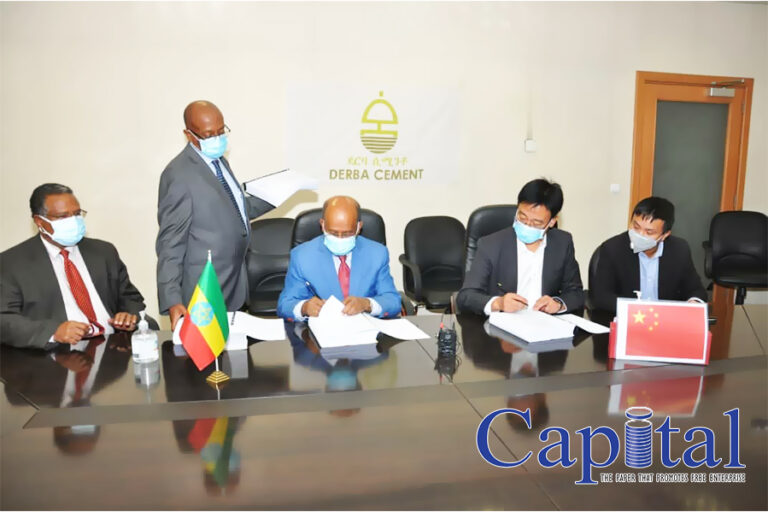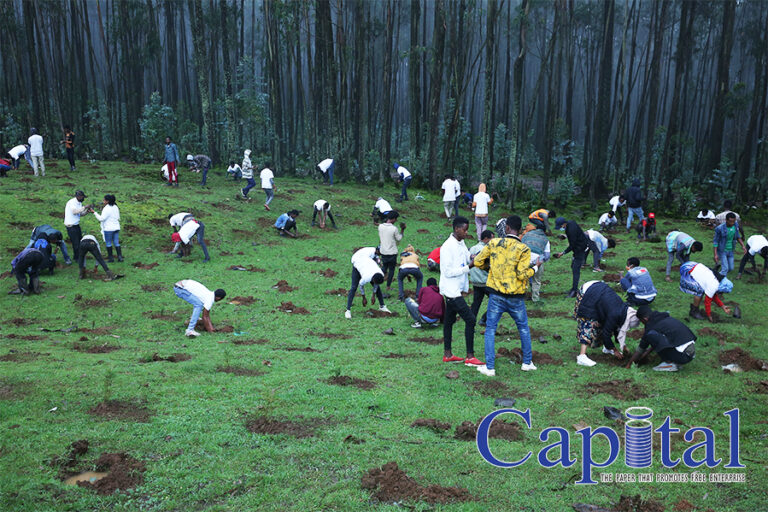Request for Proposal (RFP) for hiring Service Provider for Financial Education for Youths and TATARI Saving Schemes for Students in Amhara Region
- BACKGROUND
Financial education is a fundamental tool in reducing the challenge through enhancing youths and MSMEs’ level of financial literacy. It increases the access and utilization of financial services, which allow enterprises to innovate and exploit their capacity. It also improves MSMEs’ competency and enables to survive in an increasingly turbulent environment. As financial education for entrepreneurs’ spreads throughout MSMEs, it can create a self‐reinforcing mechanism.
On the other hand, financial institutions need to come out from the vicious circle. They need to create awareness to MSMEs the new joining labour force about the various types of financial products and available services. This would help FIs to broaden their customer bases and mobilize more resources. Likely, MSMEs and particularly youths ease the intention of feeling precarious unemployment and financial insecurity.
Through BRIDGES engagement for a year and half in the financial market, it was found out that the unemployed young men and women lack awareness about the various financial service offerings that would enable them access credit to realize their vision. Hence, this intervention was implemented in Addis Ababa which resulted in training more than 15,000 youths leading to more than 2,000 youth to access credit so far. The training encompasses on mid sets, basic entrepreneurship, financial institutions awareness and product offerings as well as credit.
The financial education will be provided using different delivery channels ranging from financial literacy campaigns to more structured seminars and workshops. BRIDGEs will be engaged in supporting the intervention through creating the working platform, which will help the main actors to pay their own part in closer coordination.
The Financial Education interventions mainly target unemployed youths and MSMEs in Amhara Region. These target groups can easily reach and communicate through the concerned public administration. In general, the initiative will be operational in partnership with the Region Job Creation and enterprise Development Bureau, TVET’s Tana Union, Walia Capital Goods Financing, SACCO’s, other MFIs and the consultants. For the awareness creation program, it was envisaged to reach to 15,000 unemployed youth in which at least 10,000 will be accessing credit from various financial institutions.
On the other hand, TATARI for Students program is designed for higher education institutes’ (university and TVET) students as well as young graduates aspiring to become entrepreneurs. It provides training, mentoring, matching grant and credit facility to eligible members. It works in partnership with selected financial institutions for favourable saving and credit facilities.
It also provides continuous business development service, coaching and mentoring services between 6–12 months. Each member of the TATARI program will contribute a minimum fixed amount on a monthly basis in account to be opened in the partner financial institution. The BRIDGES program will match certain amount of money upon graduation depending on the number of years they have been saving and availability of fund. Upon the students’ graduation, the partnering financial institutions will provide a credit of up to 5 to 6 folds of the saved amount with favourable credit terms to TATARI members.
- BRIDGES PROGRAMME
First Consult (FC)/Development Alternative Inc (DAI) is contracted to provide management and technical support services to Mastercard Foundation under the BRIDGES programme to support the creation of close to 600,000 youth jobs (80% women) and 15,000 MSMEs, with 300,000 unemployed youth trained through supporting IP job creation initiative and market linkage between IPs and MSMEs.
The BRIDGES Programme will address two fundamental, immediate and complementary challenges to unlock the potential for job creation within IPs and their surrounding ecosystem. (1) Making the
industrial workforce markets work, which through the Enterprise Partners Programme, First Consult/DAI have successfully piloted in a few industrial parks and is now ripe for scale-up. (2) Making the IP business linkages (MSME) markets work to enhance domestic manufacturing value-added (MVA) for every given dollar of export. This will be done by substituting the currently-heavy import-dependent operations – itself a constraint on the factories – via local suppliers (MSMEs) in a number of ways.
The Government of Ethiopia recognizes the critical role played by Micro and Small Enterprises (MSEs) in creating job opportunities especially for young people and women, as well as for boosting national income and wealth that is important in igniting industrial transformation and private sector development. This is also well articulated in the Growth and Transformation Plan which prioritizes and identifies the development of micro and small businesses as catalyst for promoting industrial development. However, issues such as A2F, premises, market and linkage issues remain a challenge. To address the aforementioned, the A2F issue, BRIDGES Programme partners with many Financial Institutions (FIs) to ensure that FIs received the necessary Technical Assistances that will enable the FIs to cater the wider group of MSMEs that are youth focused.
- OBJECTIVE
The objective of this assignment is to provide financial awareness training to more than 15,000 unemployed youths and MSMEs in Amhara Region and enable minimum of 10,000 of them to access credit from financial institutions through strong follow-ups, supervision, and mentorship.
Moreover, for TATARI, the Coordinator will be responsible for selecting and registering 3,000 interested students, coordinating, consolidating, and ensuring smooth implementation of TATARI program and will work closely with academic institutions, training and BDS service providers, partnering financial institutions, students/graduates and other concerned stakeholders as intended.
- SPECIFIC TASKS
The firm will be responsible:
For Financial Education Intervention:
a. Coordinate with relevant financial institutions, Amhara Region Job Creation and Enterprise Development Bureau, TVETs and identifying potential list of trainees;
b. Provide one-day financial awareness training to 15,000 unemployed youths and MSMEs in the region
c. Enrol the trainees in the developed format and report to the programme
d. Follow-up, supervise, and provide proper guidance to trainees to access credit from financial institutions. Access to finance is expected to be created to 10,000 youth on success fee basis
e. Link and support MSEs with financial institution
f. Support the organization and creation of SACCOs in the region
g. Provide capacity building supports to relevant stakeholders
h. Any other tasks to be determined
For TATARI for Students intervention:
a. Ensure implementation of work plans in accordance with the agreements signed between the institutions and BRIDGES;
b. Identify, approach and facilitate the process to onboard higher education institutes to be part of the TATARI program;
c. Work closely with target universities/ TVET institutions to promote and register aspiring students for the program;
d. Facilitate and organize workshops and trainings in collaborations with service providers and academic institutions;
e. Facilitate coordination and smooth flow of communication among stakeholders;
f. Facilitate the provision of continuous and regular trainings, business development service, coaching and mentoring services for TATARI members;
g. Monitor and evaluate the effectiveness of the trainings given under the TATARI program;
h. Collaborate and closely work with selected financial institutions for opening of blocked saving accounts and follow up with the matching fund;
i. Ensure implementation challenges and risks are flagged and mitigated ahead of time;
j. Take proactive steps as per the dynamics of the project and manage the entire registering of students to the program
- DELIVERABLES
The following reports will be required as deliverables:
For Financial Education Intervention:
- Develop modules on mind sets, entrepreneurship and financial literacy
- Coordinate with relevant stakeholders in targeting, selecting and providing trainings to the youth
- Monitor the training delivery and report on timely manner
- Regularly report the number of trainees and the number of trainees accessing credit to the Monitoring, Evaluation, Research and Learning and (MERL) and the Access to Finance team at First Consult, BRIDGES Program;
- Organize workshops for the relevant stakeholders as per the BRIDGES request and work plan
- Submit the Final assessment report to the Access to Finance team, which illustrates the overall performance, challenges encountered, way of forward.
For TATARI for Students intervention:
| No. |
Description of each deliverable |
Timeframe |
| 1 |
Regular reports on progress and registering students for TATARI programme and soft skills training as per the project work plan. |
Weekly |
| 2 |
Monthly project performance reports |
Monthly |
| 3 |
Quarterly and final project reports as per a template agreed with BRIDGES |
Quarterly |
| 4 |
MRM trackers on an agreed basis |
Monthly |
The assignment will take 12-18 months, with a possibility of extension, starting from August 2021. Performance based payment will be applied.
- QUALIFICATION AND EXPERIENCE:
Applicant Firm must have qualified trainers who has experience in managing such training programmes, delivering trainings and good understanding of the regional stakeholders such as financial institutions, Job creation agencies, TVET’s etc that are part of the youth eco-system.
- Experience working in a multi-stakeholder environment delivering similar assignments;
- Prior experience implementing coordination assignment;
- Strong track record of project management and reporting;
- Demonstrated ability to network with various stakeholders;
- Good understanding of MSMEs development/ sector and related work experience;
- Excellent analytical, technical and conceptual knowledge about management and grasp of business management principles and practices;
- Strong verbal and written communication skills in English and Amharic;
- Experience related to youth job creation and connection to financial institutions, higher education institutes including TVET is an asset.
The firm must be based or have branch office in Bahir Dar.
- WORKING ARRANGEMENT
The BRIDGES Access to Finance team will assign the Intervention Manager to assist the training delivery process and for any information. The Intervention manager and Monitoring, Evaluation, Research and Learning and (MERL) team will be involved throughout the process of the engagement.
- APPLICATION PROCESS
In response to this TOR, qualified companies should submit both technical (maximum 10 pages, CVs could be annexed) and financial proposals (Maximum 4 pages) in the following structure:
Technical Proposal
- Relevant Experience of the experts
- Description of Technical Approach, Methodology, and Work Plan for Performing the Assignment
- Team Composition, Assignment, and Key Experts CV’s
Financial Proposal
The firm should submit the total budget in the proposal with detail breakdown including applicable government taxes. All costs should be stated in ETB. The financial proposal must include the fixed payments for providing the trainings of 15,000 youth (on average it will have 300 sessions assuming that there are 50 youth per session) and success fee rates for each loan files or membership to SACCOs (minimum 10,000 youth).
For TATARI the firm should list down all costs it will incur in the financial proposal. The payment milestone should be:
a. based on number of TATARI students registering, attending trainings, opening saving accounts with fixed payment
b. and accessing matching fund/credit on a success fee basis
Clarification/Contact person
For any clarification, please contact Kalkidan Alemseged at kalemseged@firstconsultet.com no later than 5 PM on August 11, 2021.
Submission of the proposal
The Offer shall include both the “Technical” and “Financial” Proposal and submit to the following email address bids4@firstconsultet.com
Deadline for submission of proposals
Applicants should email their proposal (technical and financial) to bids4@firstconsultet.com with the relevant information detailed in technical and financial section of a proposal. The subject of the email should say Financial Education for youths, BRIDGES Project. Proposals must be received no later than no later than 5 PM on 16th August 2021.






